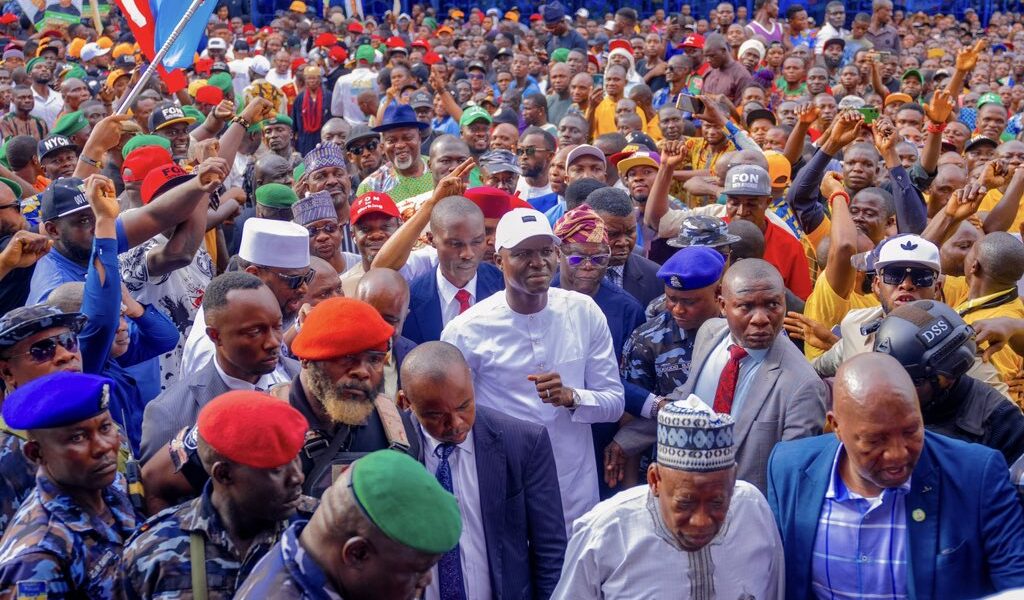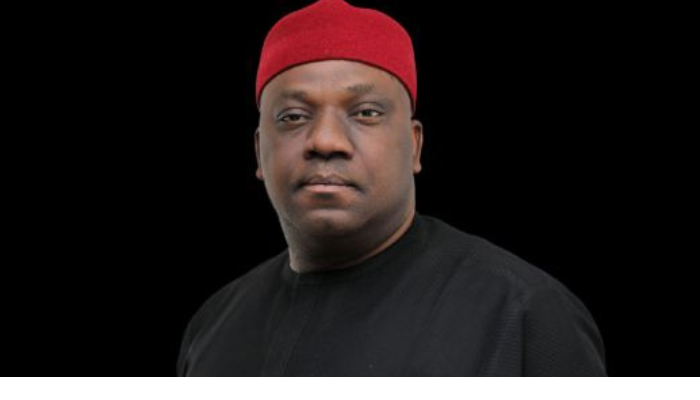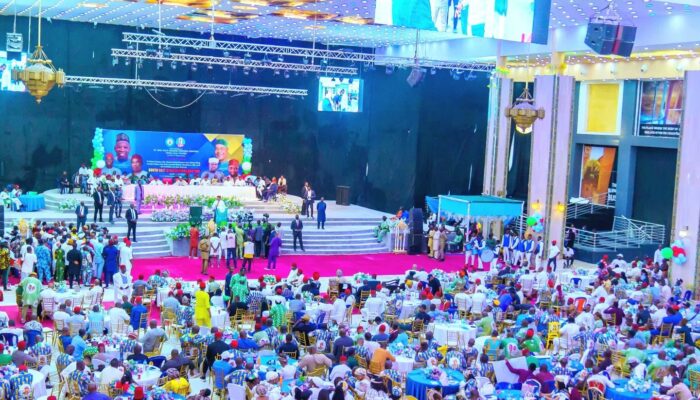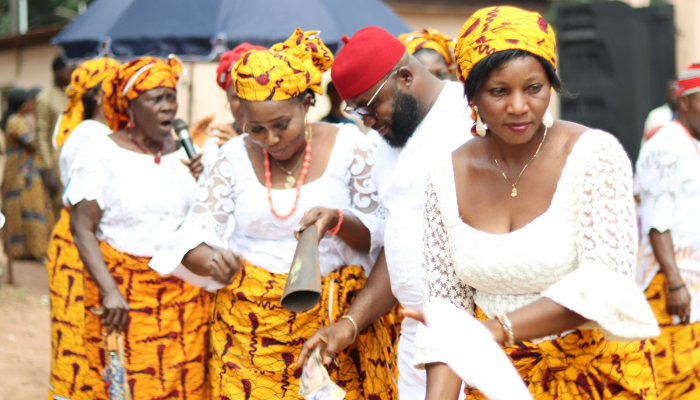
“The people of the South East are now awake from their long political slumber, and are speaking to us, privately and publicly, as we consult widely in the region towards total victory for the APC in the next elections.” – Dr. Ijeomah Arodiogbu, National Vice Chairman, APC, South East Zone.
“We are taking over. Five over five is loading massively. APC bu party anyi.” –Ijegalu, party member, Anambra state.
At a time in the recent past, political mischief makers needed to validate their anger against the federal government over the economic policies of the administration of His Excellency, President Bola Ahmed Tinubu, GCFR. And what better way to achieve this objective, they probably reasoned, than to single out the South East, and seek for a way to drag Ndigbo into their unpopular political fray.
They were angry at the APC government over its inaugural economic policies, perceived as harsh, but which were aimed at stabilizing the ailing economy inherited on May 29th, 2023 from the previous administration. So, the disgruntled protest-instigators set out to express this outrage through organized but sporadic street protests largely ignored by the public. They’re now plotting to embark on a fresh protest this August, and may probably want to rope in Ndigbo again. It is understandable.
To wear any protest against the federal government the garb of legitimacy, acceptability and nationwide spread, Ndigbo must not only be seen to be part of it, but also at the forefront.
In the previous failed attempt to go on a protest against the Tinubu administration, the plotters had resorted to subterfuge to drag the South East region into it; they had publicly flown a kite by voicing their concern, wondering why the people of the South East zone were not yet up in arms at the time, as were the other regions. Why were the South Easterners not protesting against the hardships engendered by the economic policies of the government, they had asked?
Recall that at the wake of the sudden petroleum products scarcity, and the attendant price rise occasioned by the fuel subsidy removal, and later by the segmented increases in electricity tariff, murmurings arose in the land. Hardship had set in.
“Why were the Igbos not protesting the hardship in the land,” the enemies of the South East had asked, as widely reported by the popular media. Observers and analysts went to town for answers.
In spontaneous opinion samplings conducted on the streets and the results of which were published in both the traditional and the social media, some Igbo men and women respondents returned answers to the subject question. Some said that as hardworking citizens of Nigeria, they simply adjusted and adapted to the new economic realities in the face of the sudden hardship, rather than waste their precious time whining and complaining, or protesting over a situation they could do something about. The majority of South Easterners agreed with the president’s economic policies and quickly adjusted their businesses to align with the new reality.
2. Discerning political analysts, however, wondered why it would be the business of anyone, or group, outside the South East, to query why Ndigbo had not embarked on street protests against the harsh economic conditions elicited by the subsidy removal and other reformative policies of the Tinubu administration.
The people of the South East themselves easily and readily saw through such curiosity by political mischief makers interested only in stoking the situation in the polity with the sole aim of seeking to antagonize Ndigbo with the administration of His Excellency, President Bola Ahmed Tinubu.
They forgot, however, that the people of the South East are generally a highly educated and enterprising group. And being among the foremost players in the economic sector of the nation, had not only followed developments in the polity but had also been able to accurately interpret and appraise the direction and possible outcomes of key government economic policies.
The ruling party, the All Progressives Congress (APC), whose moderate performance in the South East region in the last presidential election, prompted them to intensify efforts to take over the zone come the next set of elections, have been working hard in the region.
After the necessary post-presidential election stock-taking, they have been out spreading the gospel of Tinubunomics and the people of the region have been listening.
In an interview with the Television Continental (TVC), one of the television stations in Nigeria with nationwide coverage, a top leader in the APC who is also the National Vice Chairman of the party in charge of the South East geo-political zone, had this to say to the mischief makers attempting to needlessly drag the region into a spat with government:
“The leaders and the people of the South East, irrespective of their political leanings, have been speaking to us, both privately and publicly. They told us why they were not joining the protests against the sitting president over the hardship in the land. They said they understood the reason behind the current economic policies of the government, the inevitable side effects of which were being experienced by the masses. They also said they knew the side effects, manifesting as the present nationwide hardship, were temporary bitter pills that citizens had to swallow, to cure the economic ailments necessitating their administration as therapy.
“The South East people have promised us that come the next elections, starting with that of the governorship in Anambra in 2025, and the presidential in 2027, they would vote en masse for our great party, the APC. We believe them, and we are encouraging them to remain positive. They have seen through the lies and deception of some of the opposition party leaders among them, to be so convinced of their next move.”
Observers are not surprised over this development. Since the return to democracy in 1999, the South East region had been loyal to the People’s Democratic Party (PDP), casting their political fortunes with the party. Each election season at the center, the South East had faithfully delivered block votes to this party, a political party which their leaders had co-founded in 1997/1998.
The unequal romance between the PDP and the South East region continued, until it became the turn of the region to produce the presidential flagbearer for the party in the 2023 election. The hitherto operating zoning arrangement of the party, previously adhered to with religious zeal by the party leaders, was brazenly and unapologetically jettisoned, leaving the people of
3. the region with a feeling of deep betrayal by a party they had given their all, politically. This singular act of betrayal by the PDP opened the political eyes of most Igbos.
Subsequently, the pain of the betrayal appropriately elicited political soul-searching within the Igbo, which culminated in their protest alignment with the Labour Party, a move they regretted in hindsight.
Today, the South East knows better politically, and is poised to cast the region’s lot with the APC, come the next round of elections. And the APC leaders in the South East are upbeat.
“With open arms and sincerity of purpose, we welcome them to join us in the crucial and transformative journey of our great party to a better, more prosperous Nigeria, encapsulated in the RenewedHope agenda of our president, His Excellency, Asiwaju Bola Ahmed Tinubu, GCFR. We will coast home to victory in the Anambra state governorship election in 2025. Then watch out for what will happen in the 2027 presidential election. The number ‘6’ will be turned around to become ‘9’ in the next elections in the South East zone.” — Dr. Arodiogbu concluded.
#Arodiogbu Media Office
#Abuja


